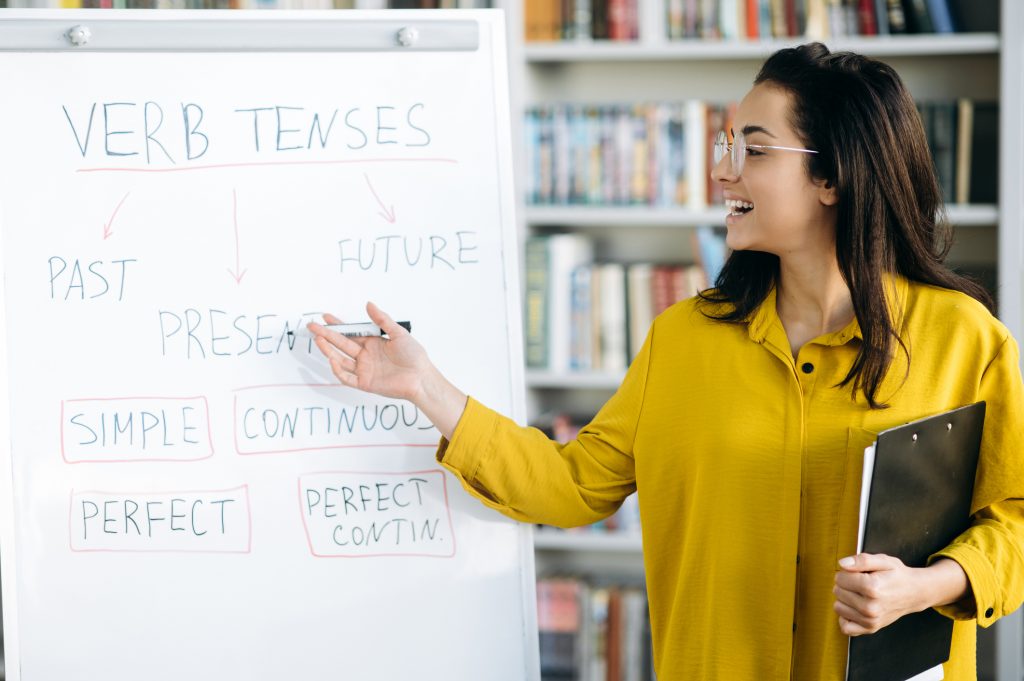Teaching for global competency may appear to be designated for schools or something we should focus on until after we’ve mastered literacy, mathematics, and other abilities. Indeed, every teacher can – and should – educate for global competence, given what pupils require to flourish in our increasingly interconnected world.

A teacher recording a lecture for an online class. Credit: Strelciuc Dumitru on iStock.
Today’s schools must ensure that students learn how to interact with people from many cultures and take action on issues that have both local and global implications. In addition, it can develop students’ global awareness concurrently with mathematics and literacy teaching.
Nonetheless, it shouldn’t be limited to a small number of pupils or specialized schools. All pupils have a right to learn global competency. Also, we observed that many parts of internationally competent teaching begin with traits that teachers already possess. Furthermore, our work establishes a framework that defines what precisely international qualified education comprises.
Empathy and the Appreciation of Diverse Points of View
As globalization forces us to engage with individuals from all walks of life, we must be open to consider various perspectives and sometimes reassess our own. Without change, progress is impossible, and those who can’t change their ideas can’t change anything.

An online teacher recording a Math class. Credit: ake1150sb on iStock.
We must be able to grasp another person’s point of view to sympathize with them fully. You’re already on your way to being a globally competent teacher if you learn how your thoughts and experiences impact your perspective on the world. Also, you’ll go much further if you’re willing to consider the viewpoints of those who disagree with your convictions.
Commitment to Global Equity Promotion
- Teaching kids to be global citizens entails assisting them in comprehending the significant concerns that our present and future leaders confront, such as hunger, poverty, and conflict all around the globe.
- Climate change is a reality.
- Access to education, medical care, jobs, human rights protections, and safe drinking water is inequitable.
Teachers must first demonstrate their commitment to a better world to develop students’ motivation to address these issues. And, they must identify the challenges to equity both locally and worldwide and overcome these obstacles. Advanced, globally competent teachers’ ultimate purpose is to motivate students to take action on these challenges.

A teacher discussing an English topic. Credit: Kateryna Onyshchuk on iStock.
Assume, though, that you’re contributing your time or money to charitable groups or that you’re simply trying to decrease your environmental impact. Also, you’re well on your way to being an internationally competent educator in that scenario. Additionally, you show youngsters how they, too, can make a difference by taking action on global concerns, no matter how young they are.
The Next Steps in Educating for Global Competence
You’re ready to move on to improving the knowledge and skillsets that characterize internationally competent teaching once you’ve created these foundations of empathy, appreciating different viewpoints, and a dedication to global equity. Moreover, globally qualified teachers, in terms of expertise:
- Know what’s going on in the world and what’s going on right now.
- Are aware of how interrelated the world is.
- Have a hands-on understanding of different cultures.
- Recognize the importance of intercultural dialogue.

An online teacher. Credit: paulynn on iStock.
The skills that characterize globally competent teaching include:
- Creating a classroom environment that values diversity.
- Global learning experiences should be incorporated into the curriculum.
- Facilitating intercultural dialogue and collaboration.
- Assessing the development of pupils’ international competency.
Takeaway
This new reality aids in defining the role of education in educating all students for success in a globalized environment. Also, keep in mind why you’re educating children for global competency, no matter where you start: they all deserve a world-class education that encourages them to expand their global understandings, connections, and talents.

A teacher attending an online meeting. Credit: monstArrr_ on iStock.
Join us on Remote Classroom, where educators establish their flexible hours and teach small groups of learners ages 3 to 18 the subjects and skills they enjoy the most.
Here at Remote Classroom, you can:
- Teach online from the comfort of your own home and on your own time.
- Create your own curriculum and teach as you wish.
- Collaborate with students who have opted to attend your class.
- Spend your time educating rather than doing paperwork.

